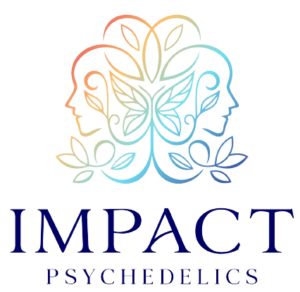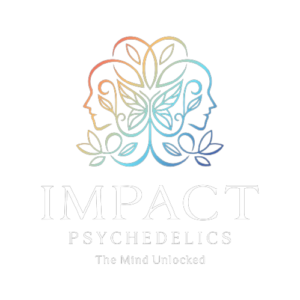
Breaking the Chains of Trauma: How Ketamine Therapy is Revolutionizing PTSD Treatment
Post-traumatic stress disorder (PTSD) is like a heavy chain that weighs down on its sufferers, trapping them in a state of fear and anxiety. Traditional treatments have provided some relief, but the chain remains, unbroken and suffocating. However, a new approach to PTSD treatment has emerged, offering a glimmer of hope to those who have been struggling for far too long.
Ketamine therapy is a key that unlocks the chains of trauma, allowing sufferers to break free from the burden of their past experiences. In this article, we will explore the science behind ketamine therapy, the personal stories of those who have found relief through this treatment, and the controversies surrounding its use. Join us as we explore how ketamine therapy is revolutionizing the fight against post traumatic stress disorder and helping people find the freedom they deserve.
The Science Behind Ketamine Therapy for PTSD
Ketamine’s primary mechanism of action is through its interaction with NMDA receptors. In addition to this, ketamine also modulates several other neurotransmitter systems, including serotonin, dopamine, and GABA, which have been implicated in mood regulation and the pathophysiology of chronic posttraumatic stress disorder.
Evidence-Based Research on the Efficacy of Ketamine Therapy
Several studies have shown that ketamine therapy can rapidly improve symptoms of PTSD, including intrusive thoughts, flashbacks, and anxiety. One study published in JAMA Psychiatry found that a single dose of ketamine significantly reduced PTSD symptoms in veterans with treatment-resistant PTSD, compared to midazolam. This only shows the effectiveness of ketamine therapy, as those who did not respond to traditional treatments had a positive response when given ketamine.
Ketamine Therapy: What to Expect
Ketamine therapy is typically administered in a clinic or hospital setting by a trained healthcare provider. The medication is given via various routes such as intravenously, orally, or nasally as Esketamine or Spravato. The dose and duration of treatment will depend on the individual’s response to the medication, but patients are monitored closely throughout the session.
Side Effects and Risks Associated With Ketamine Therapy
While ketamine therapy is generally safe, it does carry some risks. Common side effects include:
- nausea
- dizziness
- headache
- blurred vision
- anxiety, agitation, or confusion
There is also a risk of psychological side effects such as hallucinations, delusions, and depersonalization. However, these side effects are generally mild and transient and can be managed with proper monitoring and support.
What Patients Can Expect During and After a Ketamine Therapy Session
During a ketamine therapy session, patients may feel detached from their surroundings and experience altered perceptions of time and space. After the session, patients may feel tired or groggy, but these effects typically wear off within a few hours. Many patients report feeling a sense of relief and improved mood in a few hours, days, or weeks following a ketamine therapy session.
The Role of Ketamine Therapy in Combatting Treatment-Resistant PTSD
The Limitations of Traditional PTSD Treatments
Traditional treatments for post traumatic stress disorder, such as selective serotonin reuptake inhibitors (SSRIs), cognitive-behavioral therapy (CBT) and exposure therapy, are effective for many patients. However, these treatments can be time-consuming, and the results may not be permanent. Moreover, some patients may not respond to these therapies, especially those with treatment-resistant PTSD.
Ketamine therapy offers a promising alternative for these patients. Clinical studies have shown that ketamine therapy can rapidly reduce the symptoms of PTSD, including depression, anxiety, and suicidal ideation. This rapid relief is particularly important for patients who are at risk of self-harm or suicide.
In addition, ketamine therapy is less time-consuming than traditional therapies, with each session lasting approximately an hour. Patients can see results after just a few, repeated ketamine sessions, with the benefits lasting for several days to weeks after the treatment.
How Ketamine Therapy Is Helping Combat Treatment-Resistant PTSD
Similar to treating treatment-resistant depression, One of the most significant benefits of ketamine therapy is its effectiveness in treating treatment-resistant PTSD. Studies have shown that up to 33% of PTSD patients do not respond to traditional treatments.
Ketamine therapy, on the other hand, is effective even for both treatment resistant depression and PTSD patients who have not responded to other treatments. In one study, treatment-resistant PTSD patients responded positively to ketamine therapy, with significant improvements in symptoms such as major depressive disorder, anxiety, and sleep quality.
The Potential of Ketamine Therapy for Reducing the Need for Long-Term Medication
Another potential benefit of ketamine therapy is its ability to reduce the need for long-term medication. Traditional PTSD treatments often rely on medications such as antidepressants or anti-anxiety drugs to manage symptoms. However, these medications can have significant side effects and may not be effective for all patients.
Ketamine therapy, on the other hand, has a much lower risk of side effects compared to traditional medications. Additionally, ketamine therapy has been shown to reduce the need for long-term medication, with some patients able to stop taking medications altogether after completing a course of ketamine therapy.
Overall, ketamine therapy offers a promising new approach to treating post traumatic stress disorder, especially for patients who have not responded to traditional treatments. However, it is important to note that ketamine therapy is not a magic cure and should be used in conjunction with other therapies and support systems to achieve the best outcomes.
Ketamine Therapy and Mental Health Stigma
Mental health stigma remains a significant issue, particularly for patients with posttraumatic stress disorder. Many patients are reluctant to seek treatment due to the fear of being stigmatized or judged. This can have a significant impact on their mental health, with many patients suffering in silence rather than seeking help.
Fortunately, ketamine therapy is helping to change the conversation around mental health treatment. By offering a new and effective treatment option, ketamine therapy is helping to reduce the stigma associated with mental disorders such as posttraumatic stress disorder.
In addition, the growing acceptance and availability of ketamine therapy are making it easier for patients to access treatment without fear of judgment or stigma. As more and more patients share their positive experiences with ketamine therapy, the stigma surrounding mental health treatment may begin to fade.
The Importance of Making PTSD Treatment More Accessible and Less Stigmatized
Making PTSD treatment more accessible and less stigmatized is essential for improving patient outcomes. This includes increasing awareness and education around mental health conditions such as posttraumatic stress disorder, as well as promoting the benefits of new and effective treatments such as ketamine therapy.
In addition, it is essential to increase access to mental health care, particularly for underserved and marginalized communities. This includes improving access to affordable mental health care services, reducing wait times for treatment, and increasing the availability of evidence-based treatments such as ketamine therapy.
Overall, reducing the stigma surrounding mental health treatment and improving access to care are crucial steps in addressing the growing PTSD epidemic. Ketamine therapy is one important tool in this fight, and its potential to reduce symptoms, combat treatment-resistant PTSD, and improve patient outcomes cannot be overstated.
Ketamine Therapy and Integrative Treatment
Ketamine therapy is often used as part of an integrative treatment plan for PTSD. This means that it is used in conjunction with other therapies, such as counseling or psychotherapy, to achieve the best outcomes for patients.
The Role of Therapy and Counseling in Conjunction With Ketamine Therapy
Therapy and counseling play an essential role in treating PTSD, and they are often used in conjunction with ketamine therapy. This is because therapy and counseling can help patients address the underlying causes of their PTSD and develop coping strategies to manage symptoms.
In addition, therapy and counseling can help patients process traumatic experiences and develop a better understanding of their emotions and thought patterns. This can be especially beneficial for patients who have experienced multiple traumas or who have complex PTSD.
The Potential of Complementary Therapies to Enhance the Benefits of Ketamine Therapy
Complementary therapies such as mindfulness meditation, yoga, and acupuncture may also enhance the benefits of ketamine therapy for PTSD. These therapies have been shown to reduce symptoms such as anxiety and comorbid depressive symptoms and improve overall mental health.
For example, a study of veterans with PTSD found that a combination of ketamine therapy and mindfulness meditation led to significant improvements in symptoms compared to ketamine therapy alone.
Overall, ketamine therapy is just one component of a comprehensive treatment plan for PTSD. By combining ketamine therapy with other evidence-based therapies, patients can achieve the best possible outcomes and improve their overall mental health and well-being.
Ketamine Therapy in Comparison to Other Psychedelic Therapies
Ketamine therapy is just one of several emerging psychedelic therapies that are showing promise for the treatment of PTSD.
An Overview of Other Emerging Psychedelic Therapies
Other emerging psychedelic therapies for PTSD include MDMA-assisted psychotherapy, psilocybin therapy, and ayahuasca therapy. These therapies work by altering the brain’s chemistry and allowing patients to access traumatic memories and emotions in a safe and controlled environment.
Comparison of the Efficacy and Potential Side Effects of Different Psychedelic Therapies
While these therapies show promise, it is important to note that they are still in the early stages of research and development. The efficacy and potential side effects of different psychedelic therapies vary.
For example, MDMA-assisted therapy has shown promise in treating PTSD, with clinical trials demonstrating significant reductions in symptoms. However, this therapy requires multiple sessions with a licensed therapist, and there is a risk of adverse effects such as increased heart rate and blood pressure.
Psilocybin, the psychoactive compound found in “magic mushrooms,” is also being studied for its potential in treating PTSD. Some early studies have shown promising results, with participants reporting significant reductions in PTSD symptoms. However, this therapy also requires multiple sessions with a licensed therapist, and there is a risk of adverse effects such as anxiety, paranoia, and nausea.
Success Stories: Ketamine Therapy and PTSD Patients
One of the most compelling aspects of ketamine therapy is the numerous success stories of PTSD patients who have found relief through this treatment. These personal stories highlight the life-changing potential of ketamine therapy for those who have struggled with PTSD for years.
Personal Stories of PTSD Patients Who Have Found Relief Through Ketamine Therapy
There are numerous personal stories of individuals who have found relief from PTSD symptoms through ketamine therapy. For example, army veteran, Jerome Jacques and television producer, Abdullah Saeed reported significant improvements in PTSD symptoms after receiving ketamine therapy.
Insights Into How Ketamine Therapy Has Changed the Lives of PTSD Patients
Personal stories also provide insights into how ketamine therapy has changed the lives of PTSD patients. For many individuals, ketamine therapy has provided a sense of hope that traditional treatments did not. It has also allowed them to reclaim their lives, enabling them to engage in activities and experiences that they had avoided for years due to their PTSD symptoms.
The Cost of Ketamine Therapy
While ketamine therapy has shown promise in treating PTSD, it is important to consider the cost of this treatment and its potential affordability for patients.
Overview of the Cost of Ketamine Therapy
The cost of ketamine therapy can vary depending on the location, the provider, and the dosage. Also, patients typically require multiple ketamine infusions over weeks or months, which can add up to a significant expense.
Insurance Coverage for Ketamine Therapy
Currently, insurance coverage for ketamine therapy is limited. However, some insurance companies are beginning to cover this treatment for certain conditions, including comorbid depressive symptoms and chronic pain. As more research is conducted on the efficacy of ketamine therapy for PTSD, insurance coverage may expand to include this condition as well.
Potential Cost-Benefit Analysis of Ketamine Therapy for PTSD
Despite the cost of ketamine therapy, there may be potential cost savings in the long term. Traditional treatments for PTSD, such as therapy and medication, can be costly and may require ongoing treatment for years or even decades. If ketamine therapy can provide long-lasting relief from PTSD symptoms, it could potentially reduce the need for long-term treatment, resulting in cost savings over time.
Criticisms and Controversies Surrounding Ketamine Therapy
While ketamine therapy has shown promise in treating PTSD, there are also criticisms and controversies surrounding this treatment.
Ethical Concerns Surrounding the Use of Ketamine Therapy
One of the main ethical concerns surrounding ketamine therapy is the potential for abuse or misuse. Ketamine is a powerful anesthetic and has been used recreationally as a party drug. There is concern that the availability of ketamine therapy may contribute to an increase in its recreational use.
Criticisms of the Research Behind Ketamine Therapy
Some critics have raised concerns about the limited research on the long-term effects of ketamine therapy for PTSD. While early studies have shown promise, there is a need for more rigorous research to fully understand the safety and efficacy of this treatment.
Debate Around the Potential for Abuse and Addiction With Ketamine Therapy
Another concern surrounding ketamine therapy is the potential for abuse or addiction. While ketamine has a low potential for addiction compared to other drugs, there is still a risk of abuse if the treatment is not properly administered and monitored. On the other hand, ketamine has been shown to combat drug addiction.
The Importance of Ketamine Therapy in the Fight Against PTSD
Despite the criticisms and controversies surrounding ketamine therapy, it is clear that this treatment has the potential to revolutionize the way we approach PTSD and other mental health conditions. As more research is conducted and the efficacy of ketamine therapy is further established through clinical trial, we will likely see an increased use of this treatment in the medical community.
Furthermore, the potential implications of ketamine therapy extend beyond the treatment of PTSD. As we continue to explore the potential benefits of psychedelic therapies, we may uncover new treatments for a variety of mental health conditions. By embracing these emerging treatments and working to reduce the stigma surrounding mental health, we can improve the lives of millions of people who are currently suffering.
Looking for more information about ketamine treatment for PTSD?
At Impact Psychedelics, our team of experts is dedicated to helping you understand the benefits and potential risks of this innovative treatment. We’re here to answer your questions and provide you with the information you need to make informed decisions about your healthcare. Contact us today to learn more about how ketamine therapy may help you manage your PTSD symptoms and improve your quality of life.

